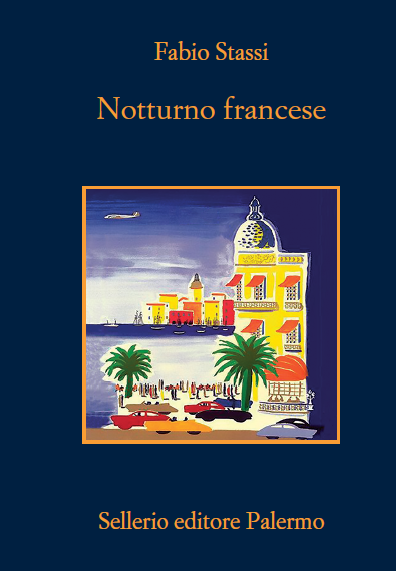Notturno Francese

A novel where the melancholy of constantly leaving behind things and people, in time and space, dominates. But also the thoughtlessness of setting out to find them. Or to be found.
Vince Corso, bibliotherapist and literary puzzle detective, on the train that is supposed to take him to a date with his fiancée runs into an original traveling companion: an educated, insinuating man who physically reminds him of the great Léo Ferré, the anarchic chansonnier of Avec le temps. Only Corso has taken the wrong direction-he was supposed to go south instead of north-and contrite he would like to ripa-rare. But the man, mysteriously allusive, urges him to persist in the mistake: “perhaps you don’t know it yet, but it may be time to make this journey.” Genoa, the first destination, will give him a tug at his heartstrings: from there to Marseilles his very early childhood had been spent. His waitress mother had conceived him with a stranger one night in late July 1969. And this was to be the most important investigation of his life: to find out who his father was. For five years Vince Corso has sent him a postcard a day, leaving the recipient’s name blank and addressing them to the only place he knew his father had passed through at least for one night: the Hotel Le Negresco in Nice. Her search will take place on the shores of the Côte d’Azur, among poor boarding houses and Art Nouveau hotels, behind poets’ verses and old characters laden with lived stories, following the indecipherable mosaic of individual destinies and coincidences. Until the recognition that completes the circle: being returned from books to life, getting back the chance to “love without measure.” French Nocturne is actually a nocturne full of light. It is a story of mistakes, of dates you don’t know you have, of labyrinths and orphans searching for a harbor. A novel where the melancholy of constantly leaving behind things and people, in time and space, dominates. But also the recklessness of setting out to find them. Or to be found.